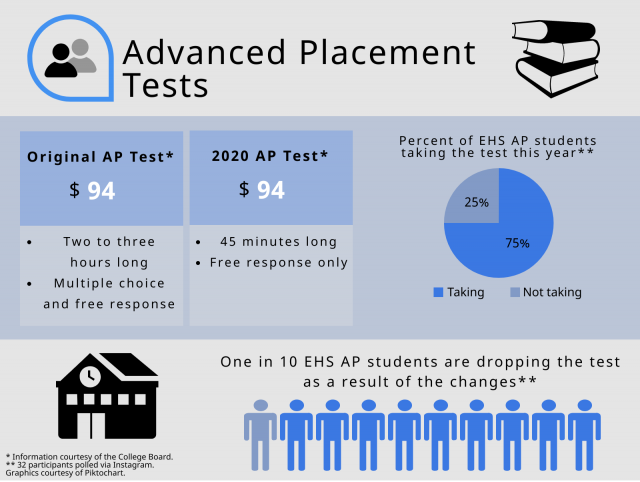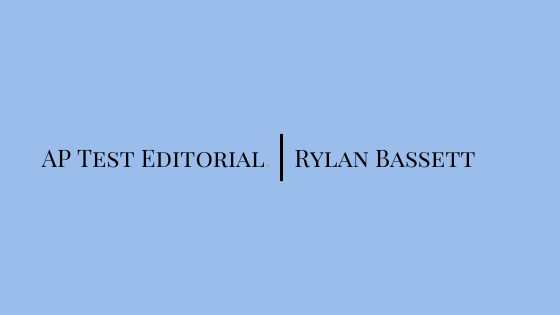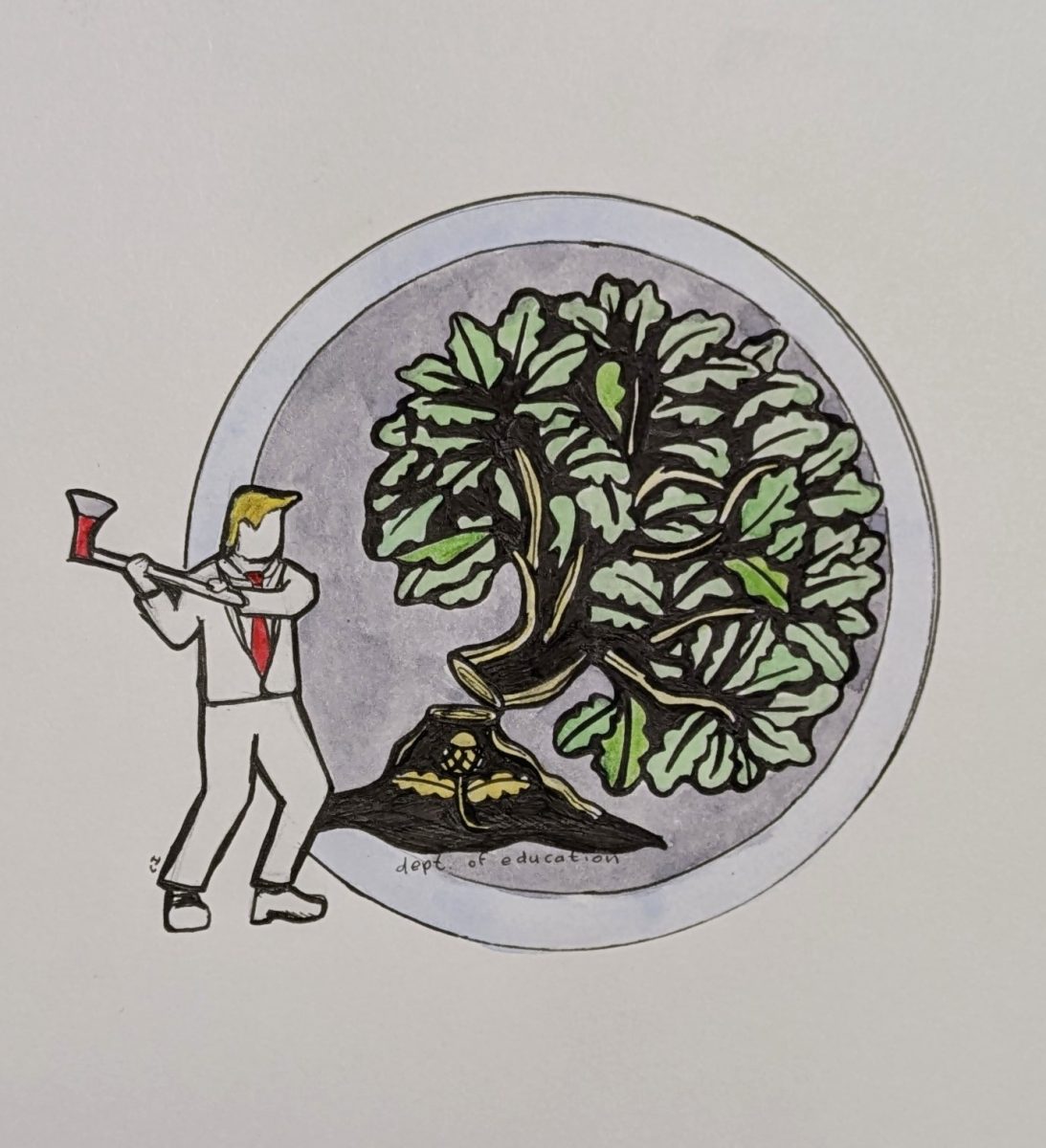During the excitement of the COVID-19 pandemic, The College Board works to maintain a degree of normality for Advanced Placement students by digitizing AP exams to be taken at home during two weeks in May.
The College Board’s COVID-specific webpage contains links to the exam schedule and live and recorded review sessions held on the Advanced Placement YouTube channel. These are wonderfully helpful distractions from the fact that high school students will be paying 94 dollars to take a 45-minute knock-off Study Island exam, often compounded by multiple courses.
On their pandemic information site, they list the benefits of staying on track and taking AP exams. First, they are “confident that the vast majority of Higher Ed institutions will award credit as they have in the past.” Seniors committed to college especially should contact their school to determine the tests’ worth, because the board’s statement does little to instill confidence. They also claim that “taking an AP exam gets you familiar with college-level work,” which may have been true of traditional testing, locked in a hot auxiliary gym pouring over a Scantron, but is now simply false.
 According to the board, which is a fittingly shrouded and powerful term, students should take the virtual exams in May because it will “show your ability to stick with a commitment while building strong skills along the way.” Someone on that team took AP Language and Composition, because that has knowing the audience written all over it. They define the terms like so: taking the exam is staying true to your course, doing the right thing, and showing your discipline while opting out is quitting, and no college wants a quitter. Leveraging the pride of AP students in order to keep their money is dastardly and brilliant.
According to the board, which is a fittingly shrouded and powerful term, students should take the virtual exams in May because it will “show your ability to stick with a commitment while building strong skills along the way.” Someone on that team took AP Language and Composition, because that has knowing the audience written all over it. They define the terms like so: taking the exam is staying true to your course, doing the right thing, and showing your discipline while opting out is quitting, and no college wants a quitter. Leveraging the pride of AP students in order to keep their money is dastardly and brilliant.
In reality, choosing not to take an exam is not quitting. Rather, it is reevaluating a situation that has changed drastically, and determining that the test is no longer worth that 94 dollars. Frugality, more so than blindly gripping a downed ship for the sake of pride, is an important quality in a college student.
In their endless effort to prepare students for college, the board refuses to prioritize what is best in terms of building good people, forever favoring the creation of blind yes-men who will take their exams simply because they would have taken them without COVID-19 disrupting the world.
For students who do opt out of their exams, they will get a full refund. In late June.
If a student decides not to take their tests, they need only to not take it. For The College Board, an entity famously big on deadlines, forms, and organization, this seems strange. This method of cancellation slipped quietly into the COVID-19 FAQs, ensures that there is no record of how many students refuse the revised tests until the board gives school counselors a list of the quitters to distribute refunds. Without those numbers in public view, there will be no panic cancellations when students realize that the worth of an AP test correlates directly with how many students take it, because the 5-point system operates on a bell curve. While The College Board is, of course, a private entity with no compulsion to release such numbers, it’s worthwhile to know that, in this case, transparency would be the death of The College Board.











